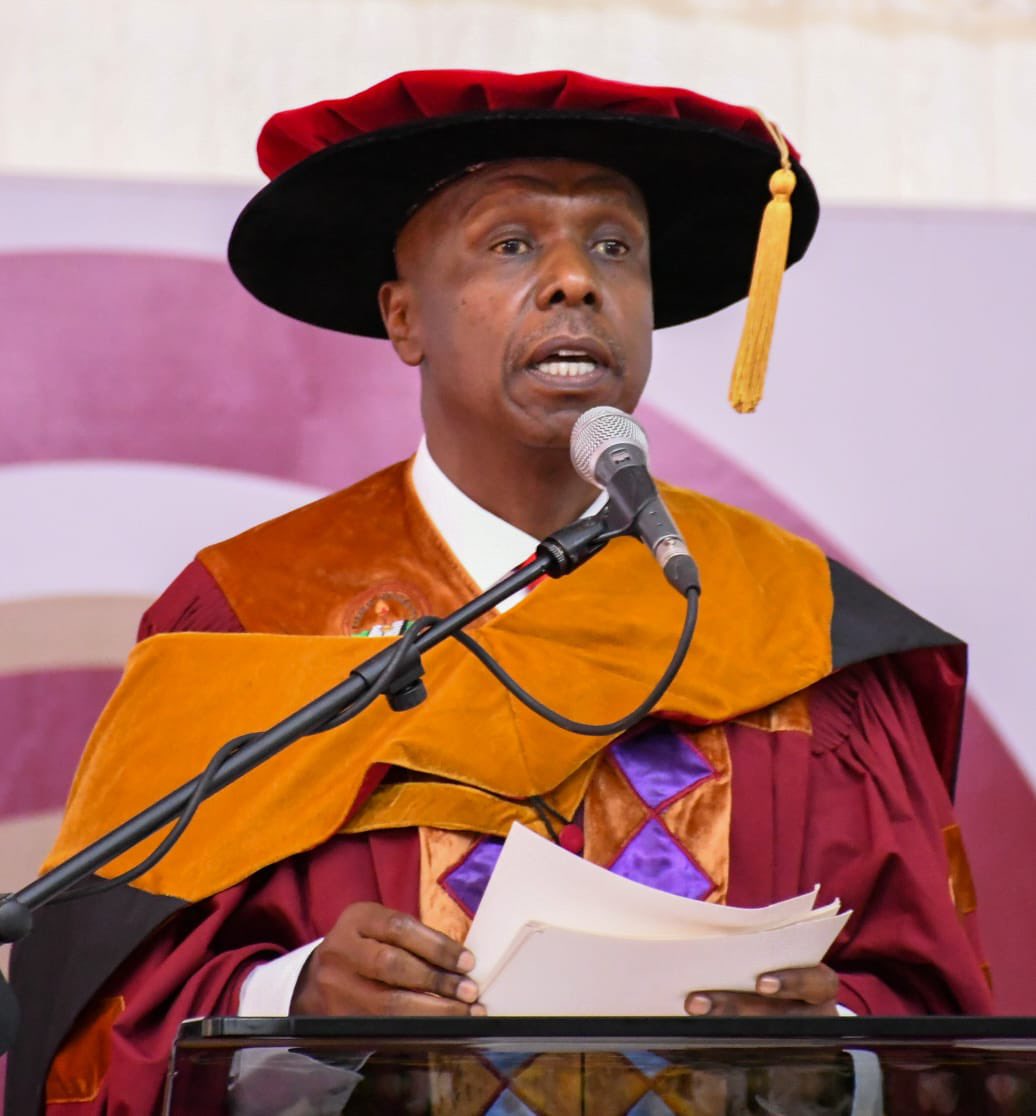
 Gideon Moi presides over the 20th Graduation Ceremony of Kabarak University on December 20, 2024. /GIDEON MOI/X
Gideon Moi presides over the 20th Graduation Ceremony of Kabarak University on December 20, 2024. /GIDEON MOI/XKanu national chairman Gideon Moi has sharply criticised the government over its admission that it can no longer fully sustain free education, terming the move a betrayal of a foundational national promise.
Moi's statement came just a day after Treasury Cabinet Secretary John Mbadi told Parliament that the government will only disburse Sh16,900 per student annually, well below the Sh22,244 figure previously promised by the Ministry of Education.
Mbadi, who appeared before the National Assembly’s Education Committee, attributed the cuts to budget constraints and rising enrolment numbers.
“Let us not lie to ourselves. The budget cannot support the Sh22,000 capitation. We don’t have the capacity to offer free primary and secondary schools,” Mbadi told MPs.
His remarks sparked backlash from legislators, some of whom accused the government of misleading the public and backtracking on its pledge to make education accessible to all.
Secondary school heads, who had budgeted based on the initial Sh22,244 figure, are now grappling with funding shortfalls that have disrupted operations.
Some schools have reportedly sent students home, cancelled co-curricular activities, or resorted to fundraising appeals.
However, Education Principal Secretary Julius Bitok has moved to assure the public that the government has no intention of scrapping free education.
Speaking on Friday during a prize-giving day at St Thomas Girls Secondary School in Kilifi county, Bitok said the ministry is committed to the programme and will engage Parliament to boost allocations.
“The government has no plans to scrap free education,” said Bitok. “We will be lobbying Parliament to enhance budget allocations to meet capitation and exam costs.”
Despite the reassurance, Moi warned that the state's retreat from fully funding education signals a collapse of one of the country’s most transformative post-independence achievements.
"The recent admission by the government that it can no longer sustain free primary education is a betrayal of a national promise that has transformed the lives and fortunes of many Kenyans," he said.
Moi blamed the Kenya Kwanza administration of prioritising "flashy token programs in exchange for political support" at the expense of substantive investment in education.
"Today, the joy of excelling in exams is short-lived for many families as the reality of the exorbitant cost of education kicks in. Parents have now been warned that they are set to dig deeper into their pockets to fund the education of their children," he added.
He further criticised the new university funding model, describing it as discriminatory and ineffective.
"The Auditor General has rightly pointed out that the model is a failure of imagination, and the dream of accessible, quality education for all is slipping away for political expediency," Moi said.
“As a country, we have begun punishing academic excellence instead of rewarding it. The question we must never cease asking is what kind of future are we building if education is no longer a national priority?”
Moi’s remarks, coming amid mounting financial strain in the education sector, are likely to intensify public debate and pile pressure on the government to rethink its budgetary priorities.
The cash shortfalls have emerged despite the education ministry having been allocated S702.7 billion of the Sh4.2 trillion 2025-26 budget.

















